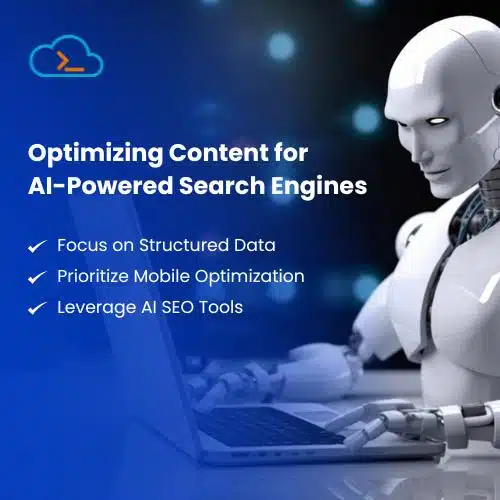What Is Search Intent And Why Is It Important?
Search intent refers to the purpose behind a search query. It is the driving force behind user inputs and is often categorized into three main types:
- Informational Intent: Users with informational intent are seeking knowledge or answers to specific questions. For instance, a search query like “What is the capital of France?” has a clear Learning intent.
- Navigational Intent: Users with navigational intent are looking for a specific website or web page. For example, a search query for “Facebook login page” indicates access intent.
- Transactional Intent: Users with purchase intent are ready to make a purchase or complete a specific action. A search query like “Buy iPhone 14” demonstrates purchase intent.
Targeting user search objectives helps businesses deliver applicable content that aligns with what users are looking for. This not only improves user participation but also boosts search rankings and drives organic traffic to your site. Content Marketing Services have embraced these advancements to provide more targeted campaigns that align with evolving search algorithms and user inclinations.
The Role of AI in Understanding User Intent
AI-driven tools and AI search engines have revolutionized the way SEO professionals interpret user intent. Leveraging machine learning, AI evaluates and interprets user actions and user preferences to understand the context behind queries. By leveraging AI models, marketers can:
- Identify patterns in search queries.
- Predict future trends in user involvement.
- Align content creation efforts with evolving seo trends.
For example, AI-powered intent targeting in SEO enables the identification of long tail keywords that better reflect user intent, ensuring content addresses specific needs rather than generic topics.
Semantic Search: The Heart of AI-Powered SEO
Semantic search results go beyond matching specific keywords to understanding the meaning and relationships behind them. Search engines powered by AI focus on delivering relevant content by analyzing:
- Context: How a term fits into the broader search query.
- Synonyms: Variations of relevant keywords that users might search for.
- User behavior: Historical patterns that indicate user inclinations.
For instance, a query like “best smartphone for photography” doesn’t just demand keyword matches; it requires identifying content that aligns with research intent and reviews that guide purchasing decisions.

Optimizing Content for AI-Powered Search Engines
Businesses must prioritize content creation strategies that effectively address query intent to adapt to AI-enhanced search engines. Here’s how:
- Focus on Structured Data: Incorporating metadata into your website enables search engines to interpret your content more effectively. Rich snippets, FAQs, and metadata like meta tags enhance visibility and improve search results presentation.
- Prioritize Mobile Optimization: With mobile devices’ growing dominance, ensuring your site is mobile-friendly is non-negotiable. Mobile compatibility enhances user involvement and aligns with modern search technology standards.
- Leverage AI SEO Tools: Using AI SEO tools can significantly enhance your ability to target user intent. These tools provide insights into:
- Keyword relevance and keyword density.
- Content gaps based on AI-powered analysis.
- Competitor strategies for engine optimization.
- Optimize for Voice Search: As voice search gains traction, adapting your content to natural language queries becomes crucial. Focus on conversational tones and questions users might ask through voice assistants.
- Create Content That Matches Intent: Whether addressing informational intent, access intent, or acquisition intent, your content should align with the needs of your primary audience. For instance:
- Blog posts for informational intent.
- Landing pages for acquisition intent.
- Navigational aids for users seeking a particular website.
Collaborating with the Best Enterprise SEO Agency in India ensures you leverage advanced AI capabilities for optimal search visibility and audience targeting.
The Future of AI-Based Intent Targeting in SEO
AI-driven search optimization is continually evolving. Businesses must keep up with the latest seo developments to stay competitive. This involves:
- Monitoring user behavior and preferences to anticipate changes in search intent.
- Using advanced AI tools for real-time data analysis and strategy adjustments.
- Incorporating machine learning insights to refine seo campaigns and improve organic traffic.
Key Benefits of AI-Based Intent Targeting
Incorporating search intent targeting into your SEO methods requires a data-driven approach and expertise in content creation. Our team of experienced content marketing specialists can help you create high-quality, informative content that connects with your target audience and matches search intent. We can help you craft a comprehensive content strategy that encaplsulates every aspect of SEO, including keyword research, content optimization, and promotion. By focusing on search beyond keywords, businesses can enjoy several advantages:
- Enhanced search visibility by delivering relevant content.
- Increased user participation through personalized seo plans.
- Improved search results precision, attracting the right target audience.
- Meaningful interactions and user queries drive higher organic traffic.
If you’re looking for the Best Digital Marketing Agency in India, choose one that integrates AI tools to refine SEO campaigns, ensuring you stay ahead in a competitive landscape.
Conclusion
Redefining SEO Strategies with AI-powered Intent Targeting Beyond Keywords represents a significant shift in how businesses approach engine optimization. By understanding user search intent, embracing semantic search, and utilizing advanced AI-enhanced tools, companies can create impactful SEO strategies. Whether it’s optimizing for voice search, refining content generation, or leveraging metadata, the future of SEO lies in adapting to AI search engines and focusing on user involvement.
By syncing your digital marketing strategies with these advancements, you can not only meet the expectations of modern users but also stay ahead in an increasingly competitive landscape.

